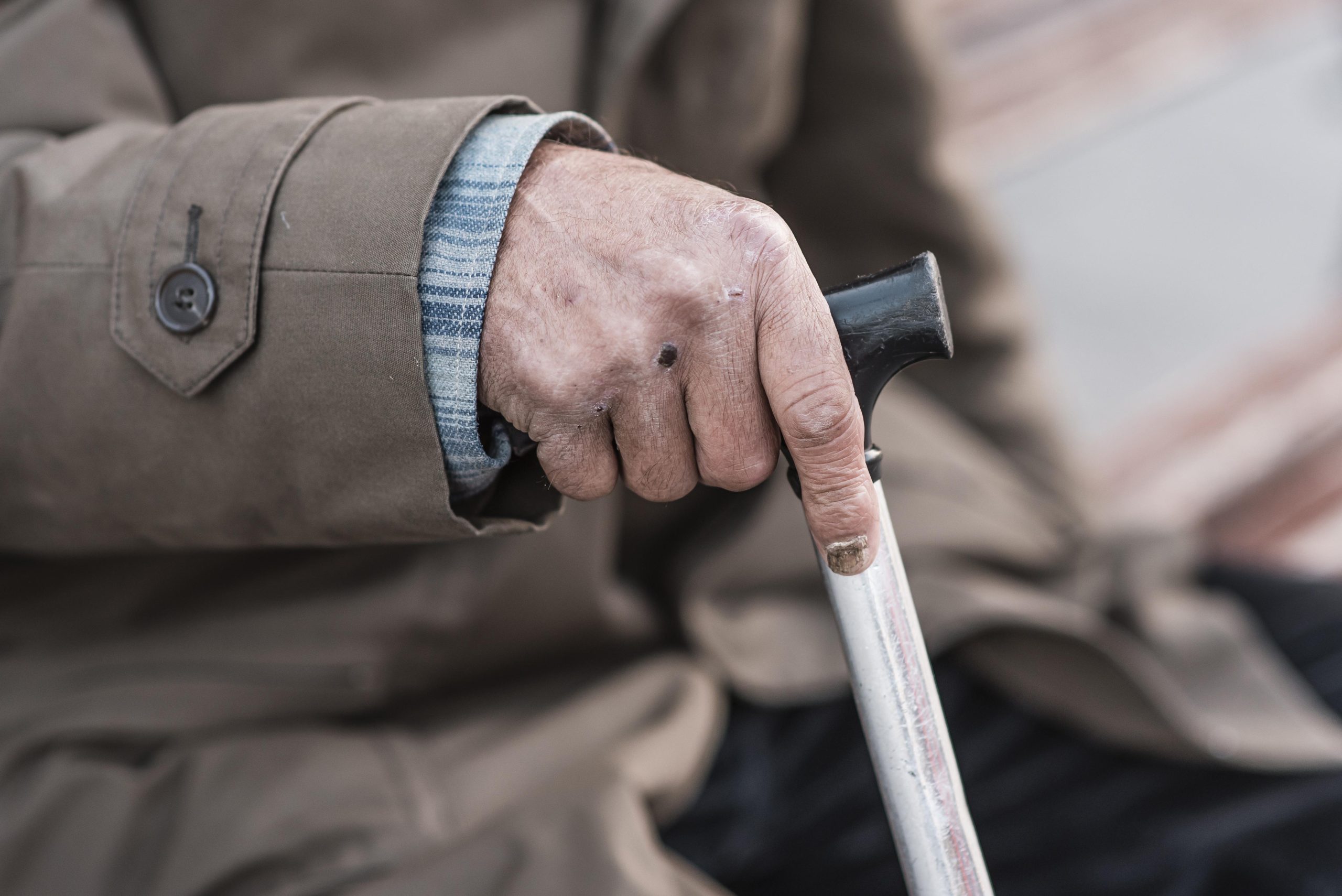Most older adults don’t need much help from others.
In fact, many of them are quite busy assisting others and otherwise contributing to their families, communities, and/or workplaces.
But of course, many older people eventually do need some help from others, especially if they live into their 80s, 90s, or beyond. After all, only a minority of people transition from being fully independent to deceased, with no intervening period of needing assistance.
(Wondering how to get an older person to accept help? That’s covered here: 6 Steps to Take When Aging Parents Need Help – Even if They’re Resisting.)
When an older person does start to need help, it tends to be close family members — assuming the person has family — that step in: spouses, adult children, siblings, nephews or nieces, grandchildren, and so forth. In fact, family members are by far the number one source of “long-term care supports and services” for older adults.
Sometimes providing this eldercare support can be fairly straightforward: a little help with transportation, or arranging for some assistance with shopping or household chores.
But in other cases, family members find themselves having to take on quite a lot. This is often due to health issues affecting the older person’s ability to remain independent and manage various aspects of life.
Some situations that commonly bring this on include:
An older person starting to develop dementia, such as Alzheimer’s or a related condition
Advanced chronic illnesses that limit daily function and/or cause frequent hospitalizations, such as advanced heart failure, advanced chronic pulmonary disease, or a progressive neurological condition
Sudden disability after a fall, stroke, or other health emergency
Difficulty recovering from a hospitalization, especially if the older person experienced delirium or other complications
Advanced age, which can eventually bring on general frailty and loss of physical strength. Very advanced age also tends to bring on more noticeable age-related cognitive changes, and is a strong risk factor for developing dementia as well.
Most people are happy to be able to help an older parent or other loved one in need.
But it’s also common for people to find it…difficult. Especially when the older parent is reluctant to accept help or make changes. (Which is probably the norm rather than the exception.)
Trying to help an older parent tends to bring up lots of different issues that people haven’t prepared to address. And many people must continue to tend to their jobs, children, and other responsibilities, as they also start trying to figure their new caregiving role.
Over the past several years, both in my in-person doctoring work, and as an aging health expert writing online, I’ve seen countless people struggling to sort out just what their older parent might need help with, and how to help.
So in 2019, I created a Helping Older Parents online program to guide people through this.
As part of the related Helping Older Parents Course, I created a list of the key domains that family caregivers usually have to address at some point.
Since most of our members find the list really useful, I thought I’d share it below.
Here are nine types of issues that tend to come up, when helping older parents.
Helping with Activities of Daily Living (ADLs) and Instrumental Activities of Daily Living (IADLs)
These are key daily life tasks, which I describe in more detail here: What are Activities of Daily Living (ADLs) & Instrumental Activities of Daily Living (IADLs)?
Older adults often first need help with IADLs, which include things like managing transportation, finances, shopping, home maintenance, and meal preparation.
An older person’s need for assistance with ADLs and/or IADLs often determines what kind of care arrangements or housing arrangements a family might consider.
Safety issues
This includes addressing issues such as financial vulnerability (or even exploitation), falls, driving concerns, and more.
Medical and health issues
Medical concerns are fairly common in late-life. Many older adults have chronic conditions that require medications, monitoring, and other forms of ongoing management.
Older adults may also develop new symptoms or health concerns, and may need their family’s assistance in getting evaluated. Family members often help bring up questions and concerns to the health providers.
Most people will also need help when recovering from an illness.
Serious illness or certain chronic conditions can cause older adults to lose the ability to make their health decisions or oversee their own medical care. Family members must often make decisions due to a health emergency or mental decline.
Legal and financial issues
Some older adults may lose the capacity to manage certain types of financial or legal affairs.
Even cognitively-intact older adults are vulnerable to financial exploitation.
Family members must often consider assisting with legal and financial issues.
Planning ahead and completing the necessary legal paperwork can make it much easier for a family to assist, if/when it becomes necessary.
Housing issues
An older person’s housing situation often affects quality of life, safety concerns, the ability of others to provide assistance, and more.
Families must often consider questions such as:
Is the current housing situation a good fit for “aging in place”?
Is a more supportive environment, such as moving in with a family member, potentially necessary?
What other options (e.g. assisted living) would be financially viable, and could be considered?
Quality of life and helping your older parent thrive
Beyond meeting basic needs, most families are also concerned about their older loved one’s quality of life.
This means considering issues such as social connectedness, purpose, autonomy, and dignity.
It’s also essential to learn more about what matters most to the older person, and what kinds of things they consider less important or would be willing to trade-off.
Planning ahead
Things to plan ahead for include future declines, emergencies, and end-of-life care.
Planning ahead tends to reduce later stress, hassles, and sometimes expenses.
Managing relationships and family dynamics
Trying to help an older parent often brings on relationship challenges and difficult emotions.
Well-intentioned people often inadvertently treat older relatives in ways that threaten their autonomy or dignity, or otherwise strain the relationship.
It’s also common for family caregivers to experience relationship challenges with siblings, a caregiving parent, or others who are involved.
Most people benefit from learning and practicing better communication skills, to better manage these relationship dynamics.
Self-care
Helping an older parent is rewarding but can easily become a source of chronic stress.
Because family caregivers are often busy, they can easily neglect their own needs and wellbeing, which can jeopardize their own health, and also affect their ability to care for and connect with their older parent.
Family caregivers can use a variety of self-care strategies to keep their caregiving strain manageable. These include joining a support group, asking for help, setting boundaries, allotting time to tend to one’s own health and other needs, and more.
I’ve also found that family caregivers can benefit from learning strategies to organize and prioritize what they are working on.
As you can see — and as many of you already know from personal experience — helping an older parent in late life can be a pretty complicated endeavor.
This is in part because all the above domains tend to interact and overlap with each other. Some examples:
An older person’s medical situation often affects their ability to manage ADLs and IADLs, and their caregiving needs.
The intensity of the medical situation also affects how much time an older person and their family spend with health professionals, which affects everyone’s quality of life.
A family’s legal permissions to assist determine how easily they can help with medical issues, housing issues, financial issues, and more.
Relationship dynamics — and a family caregiver’s self-care — affect caregiving stress, which then affects one’s ability to help a parent, and the type of energy and patience one is able to muster when communicating with others.
Sorting through decisions — whether about safety, medical, housing, or anything else — should always involve considering the older person’s quality of life and what matters most to them.
And so forth.
If so, I hope you’ll find this list useful.
There is a lot on it, but with some persistence, you’ll eventually sort your way through it all. Just don’t forget to address your self-care, ok?




